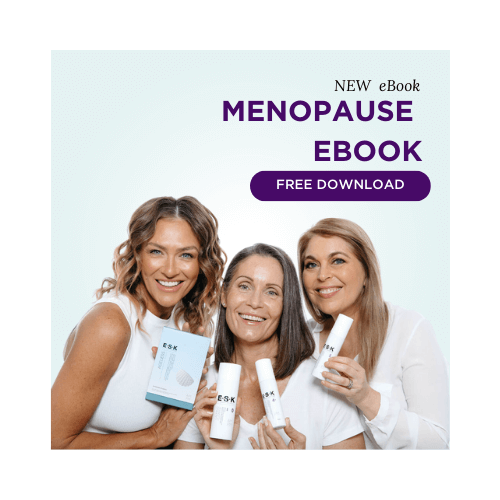
Science Hub
August 2024 Science Wrap Up
19 August 2024
Dr Ginni Mansberg
Happy August, science buffs! Welcome to this month’s edition of our Science Wrap Newsletter. We’re super excited to announce our new Hormonal Hub! In a world full of skincare myths, we’ve dug into the latest studies and evidence on four key pillars: teen skin, hormonal skin (including PCOS), pregnancy skin, and menopausal skin. Head over and check it out! This month, we're diving deep into the latest research on hormonal skin. Get ready for some eye-opening insights and tips to keep your skin glowing. Happy reading!
Acne: Not Just a Teen Thing!
The first of our brand spanking new hormonal skin articles is a review that comes from the International Journal of Women’s Health. Acne isn't just for teenagers anymore! Adult Female Acne (AFA) increasing, affecting women over 25, including middle aged, postmenopausal women, and those with endocrine disorders. The authors looked at the different types of AFA: persistent acne (continues from teen years), late-onset acne (starts in adulthood), and recurrent acne (comes and goes after disappearing for a while). The exact cause of AFA is a bit of a mystery, but it's a mix of inflammation and hormones, especially male hormones or androgens. Other triggers include stress, poor sleep, over-washing, smoking, and certain medications. Issues with the skin barrier, leading to increased water loss and dry skin, also play a role, they confirmed.
Menopausal women often experience acne due to a drop in oestrogen and a relative increase in androgens, boosting oil production. Even women with normal androgen levels can have sebaceous glands that are overly sensitive to these hormone changes.
Treating AFA isn't a one-size-fits-all situation. Early treatment is crucial to prevent scarring and its negative psychological effects. Cosmeceutical skincare can also help manage symptoms and improve skin health. The authors Active ingredients, including panthenol, ceramides, glycerin, salicylic acid and niacinamide. Hello Repair Plus and the new B Calm! They also devoted 2 paragraphs to singing the praises of Retinal. Did I mention what a brilliant summary it was?
Skin barrier damage is a major player in acne – especially in women
I loved a new study from the Journal of Drugs in Dermatology. Acne vulgaris is a tricky, multi-layered issue, especially in adults. The research highlights the often-overlooked role of skin barrier integrity in adult acne, especially in women. A panel of eight top dermatologists used the modified Delphi method to come up with seven consensus statements on this. They found that a compromised skin barrier is a big player in acne, especially among women and that this feature can make those annoying side effects like redness, itching, and dryness worse. And lots of acne busting treatments make this issue worse. The takeaway? Using skin barrier builders, like ceramides as an integral part of your acne treatment can make a world of difference. Yes, skintellectuals we’re listening. And reading! That’s why B Calm got a little update adding in- CERAMIDES!!! Perfect for acne, especially in the fairer sex! And regardless of what actives you’re using- prescription or otherwise.
Menopause and the skin microbiome- new frontiers
I was absorbed by a new study in the journal, Frontiers in Aging. This study explored how menopause affects the bacterial communities on women's facial skin. Researchers compared the skin microbiomes of premenopausal and postmenopausal women, all around the same age to make sure that the variable was hormonal state not age. They explained that oestrogen drives not only sebum but also sweat gland development, providing key nutrients and the physical conditions required by good bacteria to proliferate. Menopause and the decline of oestrogen sees a massive shift in the bacteria on the skin.
They found that postmenopausal women had less of the oily skin-loving Cutibacteria and lactic acid-producing Lactobacilli which keep the skin pH lowish. The decline in Lactobacillus after menopause not only means a higher pH in the skin, but also fewer antimicrobial and anti-inflammatory substances from these helpful bacteria. Hello itching, sensitivity and dryness.
The study confirmed that the differences between women and the colonies of bacteria they carry on their skin, are based on menopausal status not age. The findings open up possibilities for targeting skin microbiomes to treat menopause-related skin issues.

